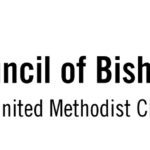[Originally published via Google Docs]
In the past few days, United Methodist clergywomen have reached out to each other, sharing our deep sorrow at the news that the two constitutional amendments relating most closely to women and gender justice were not approved. Women and girls around the connection must now live into the reality that the United Methodist Church did not affirm our equality with men and boys. We write this letter not to defend ourselves but to confront faithfully those in our church who refuse to proclaim the equality of all people in our foundational documents.
As Wesleyans, we offer a distinctly fourfold response:
Scripture: Despite the ways that Christians have misused Scripture throughout history to relegate women to second-class status, the very first chapter of our Bible tells another story: “Then God said, ‘Let us make humanity in our image…God created humanity in God’s image, in the divine image God created them, male and female God created them” (Genesis 1:26-27). Women have always been an equally important part of God’s work in this world. Indeed, Jesus commissioned Mary Magdalene as the first apostle to proclaim Christ’s Resurrection.
Tradition: Following the example set by Mary Magdalene, women continue to proclaim God’s movement on earth. From the beginning of the Methodist movement, women have led Methodists in making disciples and spreading scriptural holiness. Susanna Wesley’s ordered household and devout spiritual practice distinctly informed our faith tradition. Elizabeth Strawbridge gained early converts around her kitchen table, and Barbara Heck’s fire for faith ignited the church in the United States. Without their leadership, and that of many other women, there would be no “people called Methodist.”
Experience: Not only did women historically shape United Methodism, but women, both lay and clergy, have shaped our individual lives as they have lived into God’s call. Likewise, we shape young girls who see us in ministry and know that God can also call them. Women and girls will always follow God’s call to make disciples of Jesus Christ for the transformation of the world. And nothing – not death, nor life, nor angels, nor rulers, nor things present, nor things to come, nor powers, nor height, nor depth, nor anything else in all creation – not even The United Methodist Church itself – can separate us from the love of God in Jesus Christ (Romans 8:38-39).
Reason: We grieve. Strike that, we rage. As clergy, we have pledged our lives to a denomination which, in response, will not affirm women in its constitution. That is disgraceful. It seems apparent that ambiguity over the word “gender” is part of why these amendments were voted down. The sad reality is that we still face significant discrimination because of our gender. The church needs to address and eradicate this sin. However, to offer the clarity that some are seeking would mean abandoning our transgender and gender nonconforming United Methodists who have dealt with exponentially more discrimination in this denomination. We refuse to do this. Additionally, we urge United Methodists to look first at problems of misogyny in our respective areas before pointing out the speck in the eye of any other place. We applaud those Annual Conferences, particularly in Mozambique, South Africa, Finland, and the Philippines, which unanimously affirmed women – more than can be said for any full Annual Conference in the United States.
Church, as we celebrate 50 years together we admit with dismay that we have not lived up to the hopes of those who, upon uniting the Evangelical United Brethren Church and The Methodist Church, restored the full clergy rights to women in the EUB Church, and eliminated the shameful segregation of the Methodist Church’s Central Jurisdiction. We must repent of our unwillingness to allow the Holy Spirit to move us on toward perfection, even in this life.
Our Charge
Since the formation of our denomination, United Methodists have repeatedly brought to the General Conference amendments supporting people regardless of sex or gender. Each one of these proposed amendments has failed. Therefore, we urge every United Methodist in every Annual Conference to participate in stopping this cycle in 2020.
To stop the cycle means teaching and preaching about the God who is beyond gender. We commend the free curricula offered by the General Commission on the Status and Role of Women (GCSRW): “God of the Bible” and “Women Called to Ministry.”
We United Methodists have statements in both the Social Principles and the Book of Resolutions that have passed by a majority vote at General Conference. Our inability to achieve equality in our Constitution is a sign that these resolutions have not been fully incorporated into our denomination. We therefore challenge people to study, internalize, and act according to “Every Barrier Down: Toward Full Embrace of All Women in Church and Society” (2016 Book of Resolutions, ¶3442). This includes listening to women, especially women of color; refusing to tolerate sexual violence, harassment, or abuse; engaging women in shaping and teaching church doctrine; and evaluating progress in each context of dismantling institutional sexism.
We, the people called Methodist, continue on toward perfection. In this difficult journey, we trust what John Wesley has proclaimed: “best of all, God is with us.” May it always be so.
(This letter was written by United Methodist Young Clergywomen, a subgroup of Young Clergywomen International who are provisional and ordained United Methodist clergy under 40. United Methodist clergywomen of all ages and ministries are invited to sign with their name and Annual Conference.)
In Christ’s love,
[Click here to view the original letter with the clergy signatures.]




